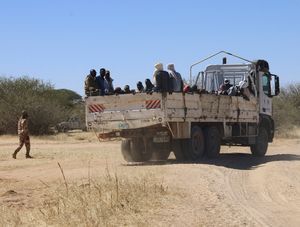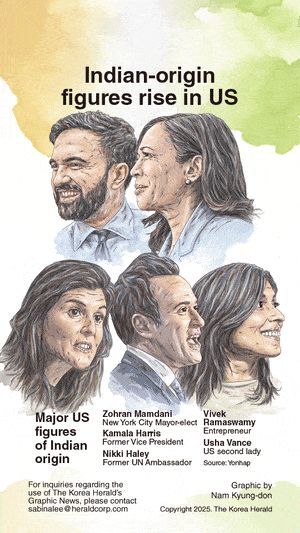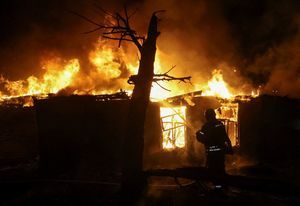 Returning from an eye-opening conference on gross national happiness in Bhutan, one of the world’s pioneering carbon-negative countries, I had a revelation: intergenerational justice might be the most crucial moral dilemma of our time. Let’s face it, folks – our world is drowning in debt. The International Monetary Fund (IMF) dropped a bombshell: global debt hit a staggering $250 trillion in 2023. That’s a mind-boggling 237% of GDP, with private debt alone surpassing $150 trillion (143% of GDP)!
Returning from an eye-opening conference on gross national happiness in Bhutan, one of the world’s pioneering carbon-negative countries, I had a revelation: intergenerational justice might be the most crucial moral dilemma of our time. Let’s face it, folks – our world is drowning in debt. The International Monetary Fund (IMF) dropped a bombshell: global debt hit a staggering $250 trillion in 2023. That’s a mind-boggling 237% of GDP, with private debt alone surpassing $150 trillion (143% of GDP)!
Now, you might be thinking, “Hold up! If global private wealth is over $450 trillion, is $250 trillion in debt really such a big deal?” Well, honey, it absolutely is when that wealth isn’t spread evenly. In 2022, the world’s net private wealth stood at a cool $454.4 trillion. But here’s the kicker – the top 1.1% of adults were sitting pretty on $208.3 trillion, nearly half (45.8%) of the global pie! It’s not just that wealth is concentrated; it’s snowballing in the hands of the already wealthy.
So, even when the economy’s booming and the stock market’s on fire, most people are feeling the blues. Why? Because they’re acutely aware of the growing income and wealth gap. Sure, wealth typically cascades down generations, but with many countries ditching death duties and the rich getting tax breaks (looking at you, America), that wealth is staying firmly put in well-manicured hands.
The UBS Global Wealth Report 2025 dropped another bombshell: we’re looking at a whopping $83 trillion in global wealth transfers over the next two to two-and-a-half decades. About $9 trillion will move horizontally, but a massive $74 trillion – that’s roughly 12% – will flow vertically between generations. Translation? Wealth isn’t spreading out; it’s funneling down to a select few heirs and successors.
Let’s talk about the average Joe and Jane. The bottom half of society isn’t just scraping by – they’re drowning in debt. And while the IMF is freaking out about rising public debt (which, by the way, is everyone’s problem, including our kids and grandkids), it’s the poor who are really feeling the squeeze. They’re slapped with sky-high interest rates due to their “risky” status. When paychecks can’t cover both interest and principal, it’s a slippery slope into deeper debt, especially in developing markets.
Now, let’s get philosophical for a hot second. Intergenerational justice is all about us not screwing over future generations. It’s pretty simple: our kids and grandkids deserve a fair shot at resources, benefits, and yes, even burdens.
But here’s the ugly truth: we’re royally messing things up. We’re leaving a legacy of social discord – think class warfare, international conflicts, religious and racial tensions – and we’re trashing the planet to boot. Deforestation, pollution, carbon emissions – you name it, we’re doing it. And guess who inherits this mess? Yep, our descendants.
We’re facing a double whammy of injustice. First, we’re screwing over our fellow humans. Second, we’re giving Mother Nature the middle finger. My generation, the baby boomers born after World War II, has created unprecedented wealth. We’re talking financial assets worth over five times the global GDP. Impressive, right?
But hold your applause. We’ve left the planet in shambles. Biodiversity? Decimated. Pollution? Off the charts. Natural habitats? Going, going, gone. Rainforests are vanishing, coral reefs are dying, and polar ice caps are melting faster than an ice cream cone in July. Rising seas, dwindling fertile lands – it’s a nightmare cocktail that threatens our very survival. Our grandkids might never know what it’s like to swim in a plastic-free ocean or drink from a pristine river.
Debt is all about instant gratification – buy now, stress later. In theory, smart cookies get rewarded with higher interest rates for delayed gratification. But when central banks go on a money-printing spree to keep interest rates low, it’s a free-for-all. Everyone’s incentivized to splurge today and ride the wave of asset inflation. We’re stuck in a vicious cycle: households borrowing to keep up appearances, governments borrowing to keep the masses happy.
For developing countries drowning in debt, it’s getting seriously ugly. UNCTAD dropped this bomb: global public debt hit a jaw-dropping $102 trillion in 2024. Developing countries account for less than a third of that – $31 trillion – but their debt has been growing twice as fast as developed economies since 2010. As of June 2025, over half of low-income countries are either in debt distress or teetering on the edge, unable to pay their bills.
Let’s talk numbers: bond yields in Africa are a whopping 9.8% per year, 7.1% in Latin America, 5.5% in Asia-Pacific, and a measly 2.8% in the US. With rates this high, African nations are struggling to fund basics like healthcare, education, and infrastructure. It’s a financial stranglehold.
The late David Graeber, anthropologist extraordinaire and author of “Debt: The First 5,000 Years,” had a hot take: debt has been used to enslave people throughout history. His mic-drop moment? “What we owe each other is not debt, but the promise to build a world worth living in together.”
In essence, he’s talking about equity – owner’s capital. My Bhutan adventure taught me that equity is all about long-term happiness, not just for us but for generations to come. If we start seeing ourselves as stewards rather than owners of our social capital, we can ditch the “take, make, waste” consumerist mindset. Instead, we can embrace a “recycle, reuse, regenerate” ethos that keeps us in harmony with both people and planet.
Our world is a powder keg of negative energy – geopolitical drama, social unrest, you name it. The only way out? Channeling our collective mojo towards social and planetary well-being. It’s on us to make sacrifices now so our grandkids can have it better. Is that really too much to ask?
Andrew Sheng
Andrew Sheng is a distinguished fellow at the Asia Global Institute, University of Hong Kong, and chairman of the George Town Institute of Open and Advanced Studies, Wawasan Open University. The views expressed here are the writer’s own. — Ed.
(Asia News Network)









Most Commented